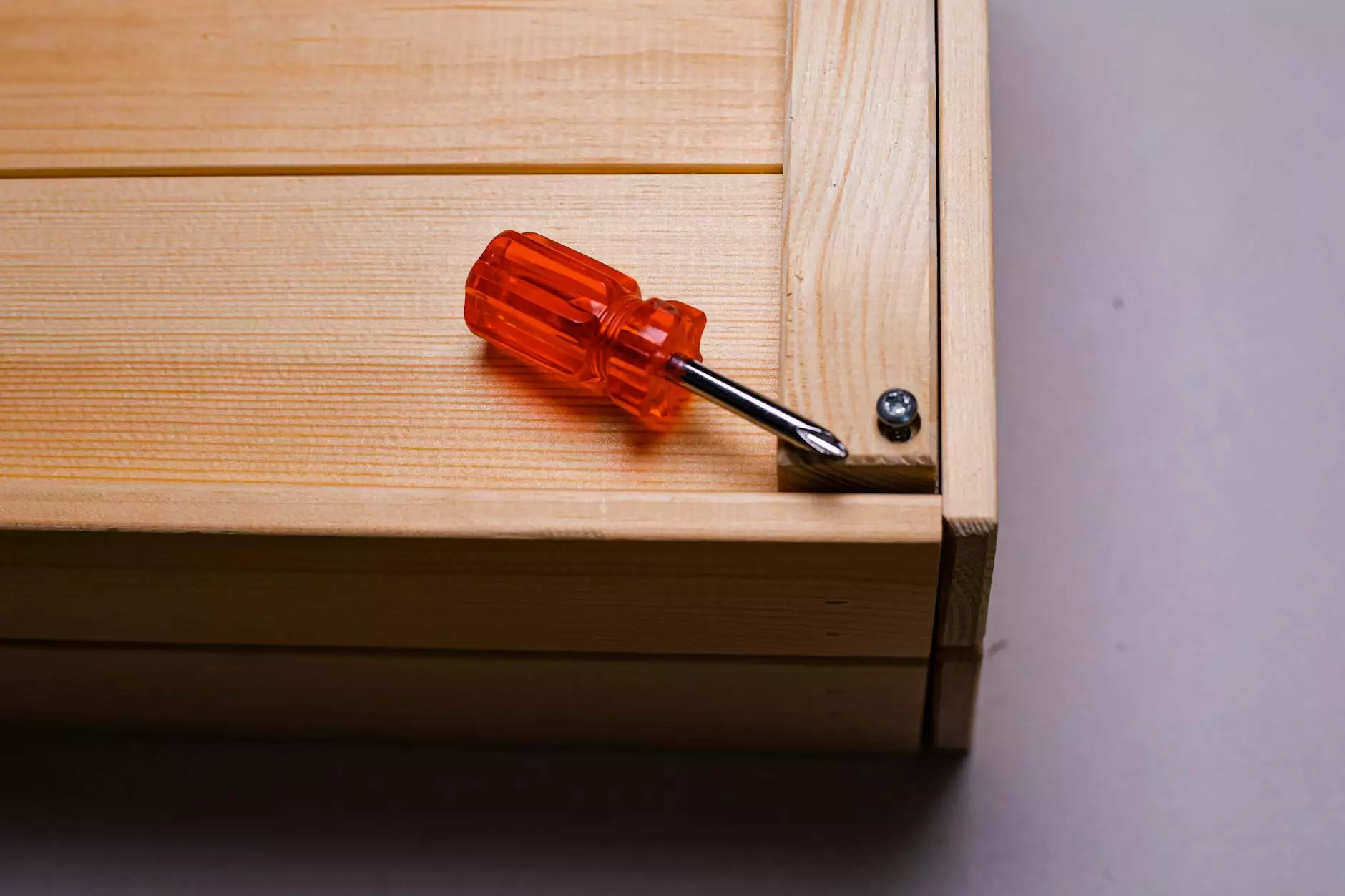Exploring the Advantages of Sourcing from a Titanium Screws Factory

Titanium screws have become an indispensable component in the toolkit of general contractors. The titanium screws factory not only produces these robust fasteners but also contributes to the overall efficiency and sustainability of construction practices. In this detailed guide, we will delve into the myriad benefits of titanium screws, the processes involved in their production, and their significance in the construction industry.
What is Titanium and Why Choose Titanium Screws?
Titanium is a transition metal known for its remarkable strength-to-weight ratio and excellent corrosion resistance. These properties make it an ideal choice for applications demanding durability, especially in environments subject to harsh conditions. But what exactly sets titanium screws apart from other materials?
- Strength and Durability: Titanium screws possess a tensile strength greater than that of steel, ensuring they can withstand significant loads.
- Corrosion Resistance: Titanium's natural oxide layer protects it from rust and corrosion, making it ideal for marine and chemical applications.
- Lightweight: Being significantly lighter than steel, titanium screws reduce overall project weight, enhancing energy efficiency.
- Biocompatibility: For projects involving healthcare facilities, titanium is non-toxic and resistant to biological growth.
The Manufacturing Process of Titanium Screws at a Factory
The journey of titanium screws from raw material to finished product involves several critical steps, all performed with precision at a titanium screws factory.
1. Sourcing Raw Titanium
The first step in the manufacturing process is sourcing high-quality titanium ore. The titanium is extracted from minerals such as rutile or ilmenite and refined to achieve the desired purity level.
2. Melting and Alloying
Once the titanium is purified, it undergoes a melting process, often carried out in a vacuum or inert atmosphere to prevent contamination. During this phase, alloying elements may be introduced to enhance performance characteristics.
3. Forming the Raw Screws
After melting, the titanium is formed into screw shapes using various methods, including:
- Turning: A lathe is used to cut the titanium rod into screw dimensions.
- Milling: Precision milling machines shape the screws according to strict specifications.
- Cold Heading: This process allows manufacturers to create complex shapes by deforming the titanium at room temperature.
4. Heat Treatment
Heat treatment is an essential process that enhances the mechanical properties of the titanium screws. By carefully manipulating temperature and time, manufacturers can improve strength and ductility.
5. Surface Finishing
Finally, screws undergo surface finishing treatments to improve corrosion resistance and prepare them for their intended environments. Techniques include:
- Anodizing: This electrochemical process enhances the natural oxide layer.
- Passivation: This chemical treatment improves corrosion resistance further.
Benefits of Using Titanium Screws in Construction Projects
For general contractors, the decision to use titanium screws can significantly impact the quality and longevity of their projects. Here are some of the compelling benefits:
1. Enhanced Structural Integrity
Utilizing titanium screws provides enhanced structural integrity to projects. Their strength allows for tighter joints, reducing the likelihood of failures under tension or shear forces.
2. Long-Term Cost Efficiency
Although titanium screws may have a higher upfront cost than traditional fasteners, their durability leads to lower maintenance costs over time. Projects benefit from reduced replacement needs and longer service life.
3. Environmental Sustainability
Using titanium screws contributes to sustainability efforts in construction. Their longevity reduces waste, and titanium's recyclability means that once a structure reaches the end of its life, the materials can be repurposed rather than discarded.
Applications of Titanium Screws in Various Industries
The versatility of titanium screws makes them suitable for diverse applications across various industries. Here, we highlight a few key sectors where these fasteners significantly contribute:
1. Aerospace Industry
In the aerospace field, the lightweight and high strength of titanium screws are crucial. They reduce the overall weight of aircraft, leading to fuel savings and enhanced performance.
2. Marine Construction
Marine environments pose harsh conditions that can corrode standard screws. Titanium screws, with their superior corrosion resistance, are ideal for shipbuilding and offshore construction projects.
3. Healthcare Sector
Biocompatibility makes titanium an excellent choice for medical applications. Whether in surgical tools or implantable devices, titanium screws guarantee safety and reliability.
4. Automotive Industry
The automotive sector increasingly adopts titanium screws to reduce vehicle weight and improve fuel efficiency without compromising safety.
Choosing a Reliable Titanium Screws Factory
For general contractors seeking to benefit from the advantages of titanium screws, selecting a reputable titanium screws factory is paramount. Here are some factors to consider:
1. Quality Assurance Standards
Ensure the factory adheres to international quality standards, such as ISO certifications, which demonstrate a commitment to manufacturing excellence.
2. Innovative Manufacturing Techniques
Choose a factory that invests in modern machinery and innovative techniques. Advanced technologies will ensure precision and efficiency in the production process.
3. Customization Capabilities
Every construction project is unique, and sometimes custom titanium screws are required. A good factory should offer customization options tailored to your project needs.
4. Excellent Customer Support
Effective communication and customer support are vital. A reliable factory will assist you in every step of the ordering process, from product selection to delivery.
The Future of Titanium Screws in Construction
As technology advances and industries evolve, the role of titanium screws continues to expand. Here are some trending developments:
1. 3D Printing of Titanium Screws
The advent of 3D printing technology is revolutionizing screw production. This innovation offers design flexibility and can significantly reduce waste in the manufacturing process.
2. Smart Fasteners
Integrating smart technology into titanium screws could facilitate monitoring of structural integrity over time, providing real-time data to general contractors and improving safety.
3. Sustainability Initiatives
As sustainability becomes more critical in construction, factories are increasingly adopting eco-friendly practices. From sourcing recycled materials to reducing carbon footprints, the future looks promising for eco-conscious manufacturing.
Conclusion
In conclusion, sourcing from a titanium screws factory is a strategic move for general contractors aiming to enhance the longevity and durability of their projects. The unmatched strength, lightweight characteristics, and corrosion resistance of titanium screws position them as the superior choice in the fasteners market.
As you embark on your next construction project, consider integrating titanium screws into your design. With meticulous manufacturing standards, you can trust that the durability of these fasteners will lead your projects to success, providing peace of mind for years to come.
For more information on titanium screws and how they can benefit your projects, visit titaniumbolts.com.









